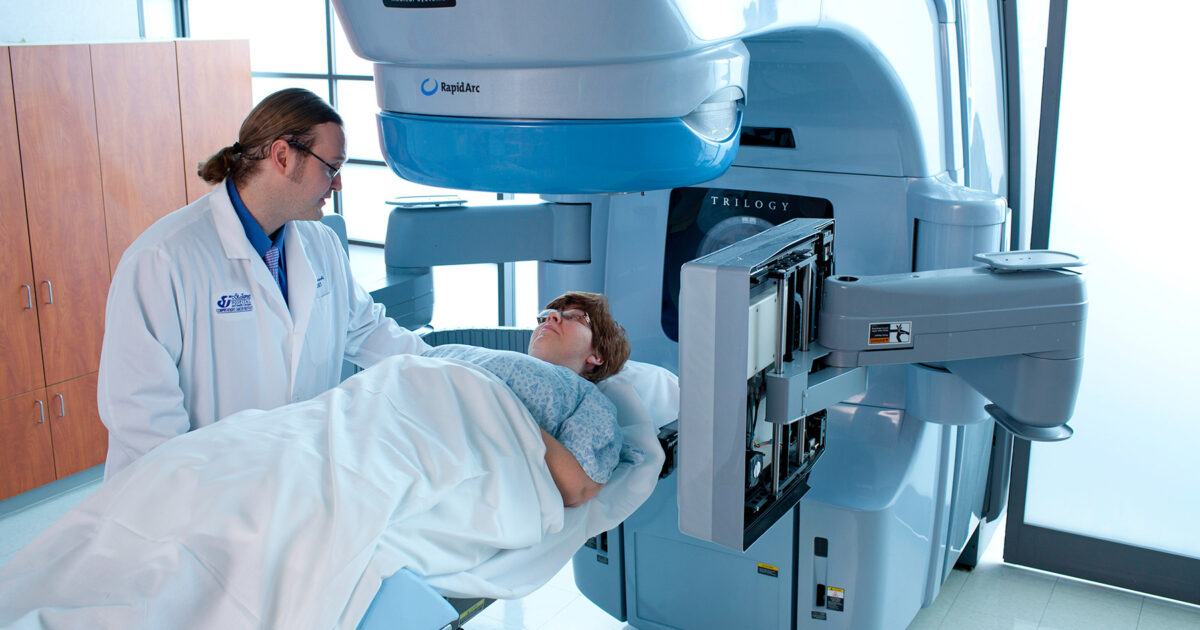Radiation oncology is the practice of using radiation to treat cancer. Radiation treatment uses high-energy x-rays or ionizing radiation to eradicate cancer cells and shrink tumors. Radiation therapy can be used independently or with other treatments, such as surgery or chemotherapy. A Radiation oncologist Phoenix specializes in the diagnosis and treatment of cancer with radiation. They work closely with medical physicists, dosimetrists, and radiation therapists to create a treatment plan for each patient’s individual needs.
How does radiation oncology work?
Radiation is a treatment that relies on high-energy waves to eliminate cancer cells. A machine delivers the radiation to the patient’s body. This can be given as one large dose or several small doses. Radiation therapy aims to destroy cancer cells without damaging nearby healthy tissue. Radiation may be used alone or with other treatments like surgery, chemotherapy, or immunotherapy.
Cancers treated through radiation therapy
Breast cancer: Breast cancer is the most common malignancy in women worldwide. It is estimated that 13% or 1 in 8 women will develop breast cancer in their lifetime.
Radiation therapy is a mainstay of breast cancer treatment. In fact, radiation is as effective as surgery in treating early-stage disease. It may be used when surgery isn’t possible due to other medical conditions or concerns about surgical risks.
Cervical cancer: Radiation therapy is a common treatment for cervical cancer, often used as an alternative to surgery. The main goal of radiation therapy is to eliminate cancer cells. It may also help shrink a tumor to make it easier to remove by surgery or prevent cancer recurrence.
Radiation may be given before surgery to shrink the tumor and make it easier to remove or destroy any remaining cancer cells after surgery. Besides, radiation may also be given after surgery if there are signs that the tumor has returned.
Head and neck cancer: Radiation therapy is often used for head and neck cancers because it can cause fewer side effects than surgery when treating these areas of the body, which have several vital structures such as the brain, spinal cord, and major blood vessels.
Lung cancer: Radiation therapy has been used for decades to treat lung cancer. The goal is to destroy as many cancer cells and tumor tissue as possible while sparing normal tissue and causing minimal side effects. Radiation therapy may be used as part of your treatment plan alone or in combination with other treatments, such as surgery or chemotherapy.
Prostate cancer: Radiation therapy may be used alone or in combination with hormone therapy to treat prostate cancer that has spread outside the prostate gland (stage IV). It’s usually given after surgery and before hormone therapy if you have an enlarged prostate, which can make it difficult to get good images of the tumor during surgery.
Radiation oncology treatment uses high-energy X-rays or other types of radiation to kill cancer cells and shrink tumors. This type of therapy can treat all cancer stages, including early-stage and advanced, localized and metastatic. For more information about radiation oncology, contact Arizona Center for Cancer Care.





